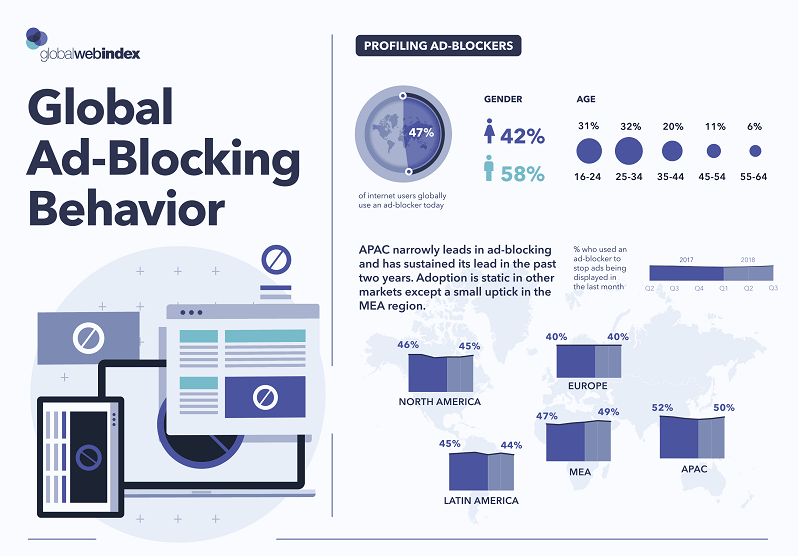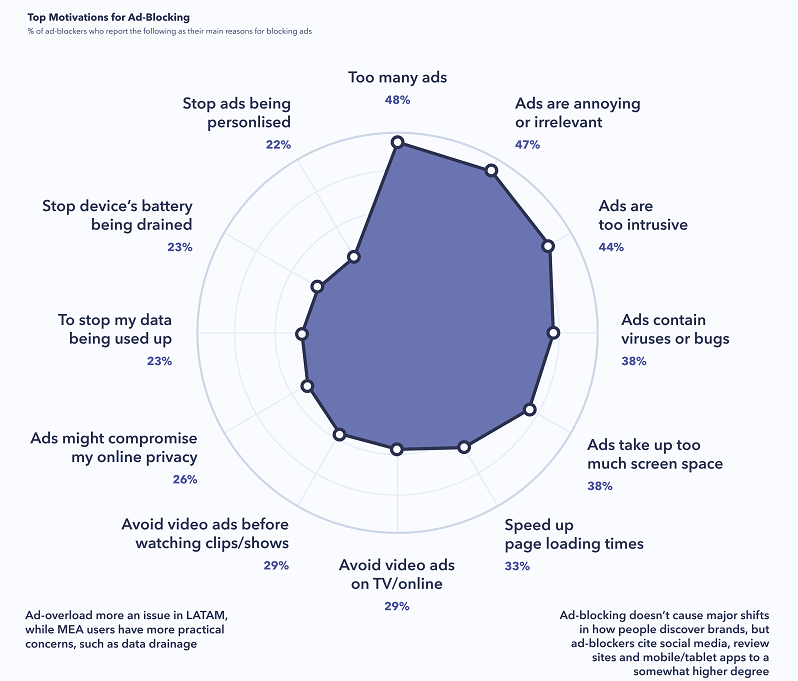Your Ad Choices – A Move to Privacy

Head of Sales Strategy and Commercial Compliance reviews the upcoming changes to the Chrome browser.
Ads have kept the internet free for so long but with invasive ad-tracking and data protection regulation has led to privacy being the buzzword of 2019.
The web is now being spoken with the added adjectives of ‘toxic’ and ‘dirty’.
Mark Zuckerberg has now come out as an advocate of privacy (and not great at telling jokes) and Prabhakar Raghavan, a senior VP at Google has said that the digital ad ecosystem is opaque and non-transparent and must be addressed if users are to feel reassured they’re in control of how their data is used.

We have seen the growth in the use of adblocking technology, to a point where it has a 36% penetration rate in Europe.
Now Google have announced that they are making two changes to the Chrome browser that will affect ad tracking and fingerprinting.
So what’s going on?
The problem with ad blockers is that they have been a blunt tool to date – they block everything. Then they let certain ads through (sometimes against the wishes of the user), then they restrict persistent logins, for subscriptions and the like (so you either have to remember your password or you keep asking for a reminder); so, not very user friendly

So, rather than let ad blockers rule how ads and data are managed, Google decided to make changes to the Chrome browser that will prevent cross-site cookies (the kind that are used in ad tracking) from working across domains without obtaining explicit consent from users. In other words, that means advertisers won’t be able to see what you do on the multiple sites you visit without asking to track you.
Chrome, which has pretty close to two thirds global browser market share, is the latest browser to announce new security and privacy features following Firefox, Edge and Apple’s Safari announcements.
Cookie-less Web
Cookies can keep you logged into a website, but can also be used to track what a user does on a site. Some work across different websites to track you from one website to another, allowing them to build up a profile on where you go and what you visit. Third party cookie management has long been an all on or all off option. Switching cookies off mean advertisers will find it more difficult to track you across sites but it also means websites won’t remember your login information, which can be a mild inconvenience, to say the least.
As a consequence, not all users would want to block all of their cookies and lose these conveniences.
Google’s update doesn’t involve a hard block on all third-party cookies, it gives users the choice to block or not. So, they’re not necessarily biting the hand that feeds it. As a consequence of this, some people think this action is only to the benefit Google as it will block out third party tech vendors who don’t have a direct relationship with people online. It will make Google’s first party data more valuable and in turn strengthen their position in the marketplace.
What Google is planning, is to only allow the site that originally set the cookie to access it and block third-party cookies, making it harder for others to track you using these cookies.

Fingerprinting
Cookies are only one part of how users are tracked across the web.It's now just as easy to take unique fingerprints of your browser to see which sites you're visiting.
The second change in Chrome addresses fingerprinting. As browser makers have added greater privacy protection for users, some players in the digital ad ecosystem have responded by creating clever ways to circumvent browser makers’ measures so that they can continue to track users across the web.
Fingerprinting is a way for websites and advertisers to collect as much information about your browser as possible, including its plugins and extensions, and your device, such as its make, model and screen resolution, which creates a unique “fingerprint that’s unique to your device. Because they don’t use cookies, websites can look at your browser fingerprint even when you’re in incognito mode or private browsing.
Understanding that its cookie changes would create even greater incentives for fingerprinting, the Chromium team says it will be “reducing the ways in which browsers can be passively fingerprinted, so that we can detect and intervene against active fingerprinting efforts as they happen.” Google said it plans to aggressively work against fingerprinting, but didn’t give a timeline of when the feature will roll out.
What's the effect?
Chrome’s upcoming cross-site cookie control and fight against fingerprinting could have some significant effects.
The ability to identify unique individuals as they move around the web, either through cross-site cookies or fingerprinting, is a fundamental tenet on which advertising retargeting solutions are founded upon. It will certainly make people think how open auction programmatic advertising is approached.
Dependent on the uptake of this, the pool of individuals marketers have the ability to target and retarget in this fashion may shrink and the length of time they are able to track individuals across the web could be reduced as well.
The introduction of these controls would also affect the attribution measurement of cross-site cookies in retargeting campaigns.
Google makes the majority of its money from advertising – many would say this is a cynical move to ringfence its interests.
One thing is certain though, the company is upping its game and responsibilities in terms of privacy, following in the footsteps of Apple, Mozilla and Microsoft. It's also important to remember that it has had some hefty fines from the EU.
In as much as many heralded the arrival of GDPR as an anticlimax, this change needs to be looked at in the round in conjunction with consumer sentiment, the upcoming ePrivacy Directive and the erosion of trust in online sources of information before it can be fully assessed.
However, anything that improves the overall ecosystem and gives more rights to individuals on the web, be it in a way that many may see as protecting their business, is still move in the right direction.
It’s not a complete block like Brave or Firefox, but in theory it does give users more control over how their data is shared.
The proof will be in the pudding, in how easy Chrome allows people to enable it.
If you would like more information on this topic or have any other queries please contact us on mediasales@rte.ie.